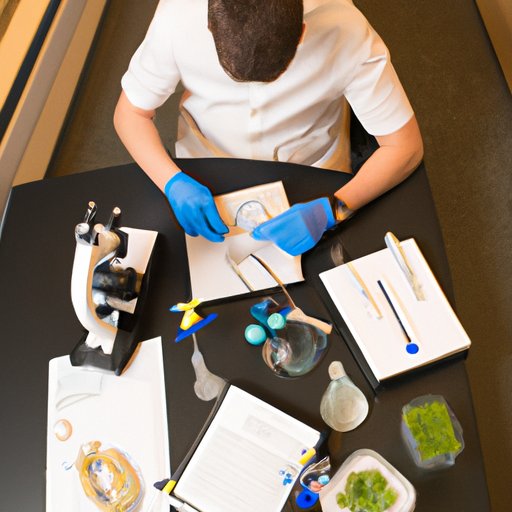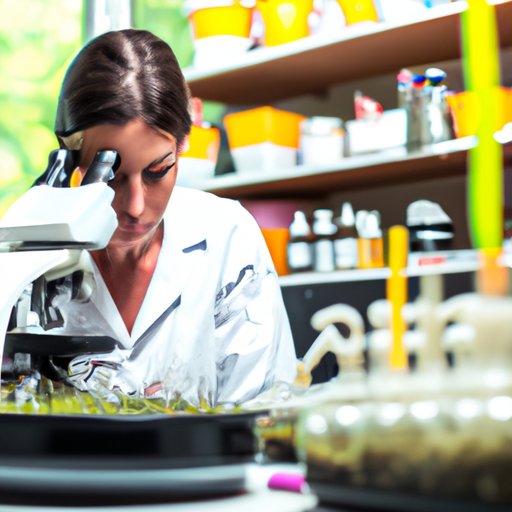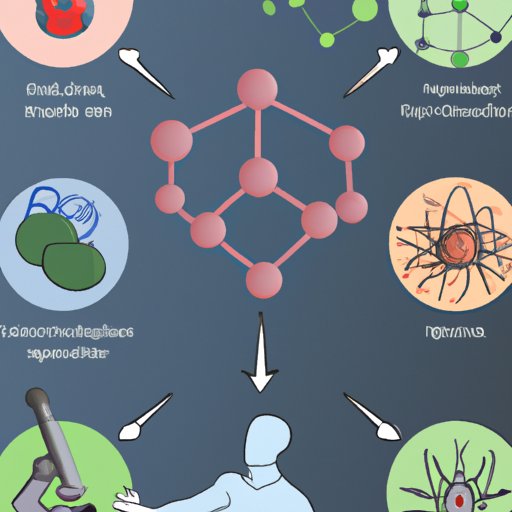
Overview of a Biological Science Major
A biological science major is an undergraduate degree program that focuses on the study of living organisms and their functions. It is a multidisciplinary field that combines aspects of biochemistry, ecology, genetics, molecular biology, physiology, and other related areas of study. Students who pursue this major will gain a strong understanding of how various organisms interact with one another and how they affect their environment.
The field of biological science consists of several different sub-disciplines, including molecular biology, ecology, physiology, and evolutionary biology. Depending on the school, students may be able to pursue a specialization in one or more of these areas. This major also provides students with the opportunity to explore potential career paths in the medical and/or scientific fields.

Exploring the Different Fields of Biological Science
Molecular biology is the study of the structure and function of molecules within the cell. It focuses on the chemical processes that occur within cells and how these processes are regulated. Molecular biologists use techniques such as DNA sequencing and gene cloning to study the genetic makeup of organisms.
Ecology is the study of how living things interact with their environment. Ecologists examine how organisms respond to changes in their environment, such as climate change, pollution, and population growth. They also look at how different species interact with each other and how humans impact the natural environment.
Physiology is the study of how the body works. Physiologists seek to understand how different organs and systems in the body function and how they are affected by external factors, such as diet and exercise. They also study how certain diseases, such as diabetes and cancer, affect the body’s functioning.
Evolutionary biology is the study of how organisms have changed over time. Evolutionary biologists examine the genetic makeup of different species and how they have evolved over time in response to environmental pressures. They also look at how different species interact with one another and how they interact with their environment.
The Benefits of Pursuing a Biological Science Major
Pursuing a major in biological science can provide numerous benefits for students. For example, it can help them gain a better understanding of the natural world and how different organisms interact with each other. It can also prepare them for a career in the field, as it provides them with the knowledge and skills necessary to work in the medical and scientific industries.
In addition, many programs offer hands-on experiences, such as laboratory work and field trips, which can give students a more practical understanding of the subject matter. These experiences can also help them develop important skills, such as problem-solving and critical thinking.
What You’ll Learn in a Biological Science Major Program
Most biological science major programs include core courses in the various disciplines, such as molecular biology, ecology, physiology, and evolutionary biology. These courses provide students with a fundamental understanding of the subject matter and help them develop the skills and knowledge needed to pursue a career in the field.
In addition, many programs offer elective courses in specialized topics, such as animal behavior, plant physiology, and microbiology. These courses allow students to gain a deeper understanding of the subject matter and explore potential career paths. Most programs also require laboratory work, which allows students to gain hands-on experience in the field.

Preparing for a Career in Biological Science
Once students have completed their degree program, there are several steps they can take to prepare for a career in biological science. One of the most important steps is to gain research experience. Working in a laboratory setting allows students to apply the knowledge and skills they acquired in their courses and develop a deeper understanding of the subject matter.
In addition, students should focus on developing professional skills, such as communication, collaboration, and problem-solving. These skills are essential when working in the medical and scientific fields. Finally, students should strive to network with professionals in the field and attend conferences and seminars to stay up to date on the latest developments in the field.
A biological science major can open up many career opportunities in the field. By gaining a strong understanding of the natural world and developing the necessary skills, students can pursue a successful career in the medical and scientific fields.
(Note: Is this article not meeting your expectations? Do you have knowledge or insights to share? Unlock new opportunities and expand your reach by joining our authors team. Click Registration to join us and share your expertise with our readers.)
